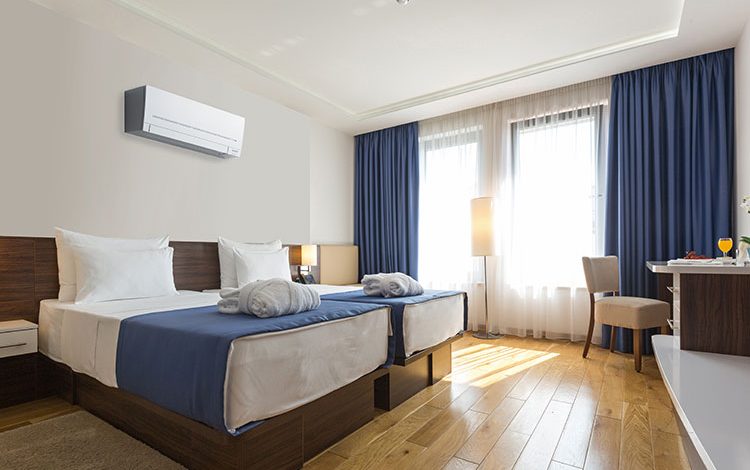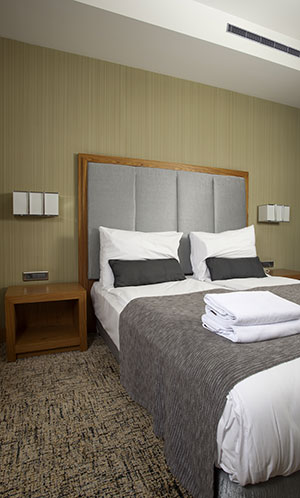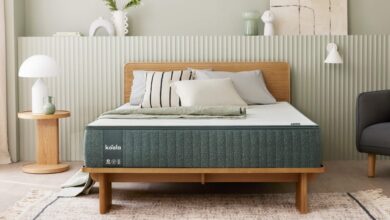
What a cool time to upgrade your air conditioning systems
‘There’s no time like the present’, is one of those grating idioms, but as we gradually emerge from our COVID-19 lockdown, it really is a good time to check the operating health of your air conditioning units.

Unless you’re located in the Top End, Far North Queensland, or the ski fields, winter generally is quiet for many accommodation providers, so it’s a great time to get your air conditioning systems summer-ready.
This is a feature article from our Spring Issue! Check out the full edition online now.
The COVID-19 health scare has also jolted us into changing the way we think and act regarding cleanliness. If guests fussed previously about cleanliness in rooms and common areas, they are even more demanding now. It is fair to say that our standards (accommodation providers and guests alike), have forever changed thanks to COVID-19.
The reasons for regularly maintaining and repairing your air conditioning systems have fundamentally not changed. It’s all about safeguarding guest health and safety as well as protecting the longevity of the units. Left uncleaned, air conditioning units can fast become a breeding ground for harmful bacteria and mould.
Legionnaires’ disease is one nasty consequence that can result from microorganism growth in badly maintained air conditioning. The cooling tower is the part of the system that can really promote these health hazards, so it is vital that they be kept resolutely spick and span with a chorine treatment or other recommended maintenance upkeep.
In summer, we love to crank up the air conditioning but if a room is too cold, it can dry out guests’ airways leaving them prone to infection and illness. The same goes for staff, which is why air conditioning in lobbies and common areas should also adhere to the same strict maintenance schedule. Humidifiers can help counteract this dryness and are an in-built feature in many air conditioners now on the market.
Thinking of upgrading? Most consumers these days are ‘green aware’, but another compelling reason to choose energy-efficient and ‘clean’ air conditioning models is they equate to dollar savings on your power bill.
The ‘big nasty’ commonly emitted by refrigerators and air conditioners is a type of synthetic greenhouse gas known as hydroflurocarbon, or HFCs. On January 1, 2018, the Australian Government introduced the HFC phase down to gradually reduce the maximum amount of bulk HFCs permitted to be imported into Australia. According to the Australian Department of Agriculture, Water and the Environment, the phase down only addresses the import of bulk gas, such as in cylinders, it does not cover gas imported in pre-charged equipment such as air-conditioners. Confusing? The takeaway message is that consumers should choose alternative technologies using different refrigerants, which are already available in Australia. To help you navigate these buying decisions, you can always ask industry experts for advice.
Industry specialist talks to Accom News
Atesh Mani, national product manager Mitsubishi Electric, shares his view on new air conditioning technologies and how industry regulations are also informing the buyer decision…
Latest technology developments have allowed air conditioners to become quieter, more efficient, easier to use and friendlier to the environment.
New developments in air conditioning controls have allowed integration with modern smart home technologies; and developments in fan and inverter technology have made the units quieter and more efficient.
There is also a growing demand for air conditioners, which use a lower Global Warming Potential, or GWP, as a measure of how destructive a climate pollutant, such as air conditioners, are.
Designers and building owners are well aware of the impact of high GWP gases on the environment. In order to comply with the HFC gas phase down, new technologies have been developed, which use lower GWP gases. These new-generation air conditioners deliver the same capacity at similar efficiencies to older models.
Why upgrade?
Customer comfort and reliability are critical considerations for accommodation managers when planning an air conditioning system upgrade.
At the same time, they must also consider products with high efficiency. Features such as advanced filtration systems, quieter operation, connection to smart controls, sleek wall controllers and beautifully designed indoor units lend themselves to a great customer experience.
A highly efficient system will provide run cost savings compared to operators’ existing systems. When upgrading, building managers can also look at lower GWP alternatives available in the market as that will help lower the impact on the environment and global warming. Anti-corrosion protection coating on the outdoor unit can help elongate the life of the unit, therefore getting the most out of your investment.
The new norm
As technology is advancing day-to-day, it is no surprise that smart homes with full control of lighting and air conditioning, and more, is now the norm.
This new normality of being able to control all aspects of your home via your smart device is also becoming a point-of-difference in the accommodation sector. Hence why a growing demand for interfaces that allow the heating, ventilation, and air conditioning (HVAC) systems to be connected to modern smart technologies.
Low on cost, big on comfort
There are various split system technologies in the market that offer really high efficiencies throughout the year. Single split systems can offer a full range of capacities with really high efficiencies and quieter operation. Accommodation operators can save on running costs without compromising on customer comfort.
A breath of fresh air
Some air conditioners are equipped with highly advanced multistage filtration systems, which are designed to reduce bacteria and allergens micron, thereby circulating fresher and cleaner air back into the room.
Most air conditioners these days are equipped with ‘dry mode’ or ‘dehumidification mode’. Not only are these systems capable of efficiently cooling or heating the house, they can also dehumidify the air.
Having a maintenance schedule is also important. How regularly the air conditioners are cleaned depends on each systems’ complexity and running time. However, typically you would expect some form of maintenance carried out every three months.
Lucinda is an Industry Reporter here at accomnews.com.au. Find more of her writing in our print publications: Accom News, Resort News and School News.







